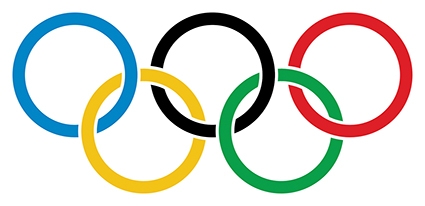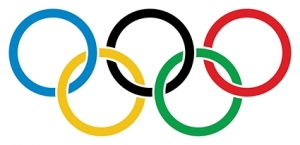‘Five Rings for Georgia’
OPED
Once, Juan Antonio Samaranch, the seventh president of the International Olympic Committee (IOC) told the world that Georgia is a small state by territory and population, but it belongs among the big nations in its traditions and potential in sports. As a matter of fact, this could very well be true, judging by the outcome of previous Olympic bouts of Sakartvelo, but let us look into the future for a second rather than back at the past.
The Rio-2016 Games are approaching fast, and Georgia is diligently getting ready to add some luster this summer to its usual Olympic shine. Georgia has enjoyed its share of Olympic triumphs in the years, but these are bygone. Indeed, this miniature country has harvested 118 Olympic medals throughout the history of the new-time Games – 37 gold, 28 silver and 53 bronze by only 259 participating athletes in 21sports. This is a fact that fairly puts our little Georgia next to the distinguished Olympic nations, considering the award/population ratio.
One of the most outstanding red-letter days on Georgia’s calendar, and its history on the whole, is the 6th October of 1989, the date of the founding of the Georgian National Olympic Committee (GNOC), headed by legendary Nona Gaprindashvili, the five-time world chess champion. Rumor has it that Gorbachev – the then-leader of the still extant USSR – had inadvertently given the green light to Georgia’s Olympic independence from the soviet sports system when Gorby was told by one of his aides that Georgia was going to openly declare its desire to create its own Olympic committee. Before the mentioned date, athletes from Georgia would only be recognized as ‘soviet’ in the Games rather than by their ethnic belonging. In those times of communist rule, all of us together – tens of various soviet nationalities – made up the so called Soviet People, the short-lived and unfortunate historical conglomerate. Nobody would mention us by our original national identities. Often, we were all applied to as Russians, totally ignoring the ethnic identity of the remainder of the smaller soviet nations. None of us liked the blunder but the rules of survival of those eerie times made us swallow the offence. Thus, the medals earned by Georgian men and women were credited to soviet sports, not Georgian. The talent was absolutely the property of the soviet ‘motherland’.
Since 1989, Georgia has been participating in the Olympic Games as an independent player, and hence all its current and future trophies are recognized purely and fairly as its national fortune. But this could not have happened without the sweat of the dexterous and valiantly determined guardians of the Georgian sports like Tengiz Gachechiladze, Emzar Zenaishvili and Paata Natsvlishvili, together with numerous other patrons of past and modern times, whose outstanding efforts have yielded what we are enjoying today – Georgia’s Olympic individuality and freedom, now officially recognized as part of the Games in a full-fledged capacity of an independent Olympic component. It was exactly this triad of poised Georgian enthusiasts who made things possible in favor of the many generations of athletes to come. What could be a better token of a nation’s independence? What could be a clearer expression of Georgia’s most celebrated national idea –freedom? So Georgia is proudly standing to take its physical strength and sporting morale to Rio to compete with the rest of the world in modern sportsmanship.
One of the highlights of this preparation took place last weekend in Borjomi when the sports writers of the country, officially accredited to Rio-2016, went through a vigorous Olympic training session in their field. The seminar was organized and headed by director, First VP of GNOC, Elguja Berishvili and his assistants Rusudan Aptsiauri and Marika Kirvalidze. President of GNOC, Leri Khabelov, made a special trip to Borjomi to attend the seminar and encourage the participants to sharpen their pens and pencils to duly covering the future Games in Rio de Janeiro from August 5 to 21. Your obedient servant was among those ladies and gentlemen of the press, which makes it presumable that he might be reporting – if fortune and remaining time still has it – under the heading of ‘For GT from Rio’.
Incidentally, here comes to mind Mark Twain’s famous words: ‘There are only two forces that can carry light to all the corners of the globe . . . the sun in the heavens and the Associated Press down here.’ Let us assume that in this particular case, AP means the media of mass communication of the world that includes Georgia’s journalistic forces, too – as free and independent as it is today. Incidentally, the title of this piece ‘Five Rings for Georgia’ is borrowed from a major five-volume illustrated edition on Georgia’s Olympic experience and achievements, created by the well-known journalist of the country P. Natsvlishvili. Any Olympic country of the world would envy Georgia’s capability to have in print such a publication about sports. Like athletes, like books!
Nugzar B. Ruhadze












